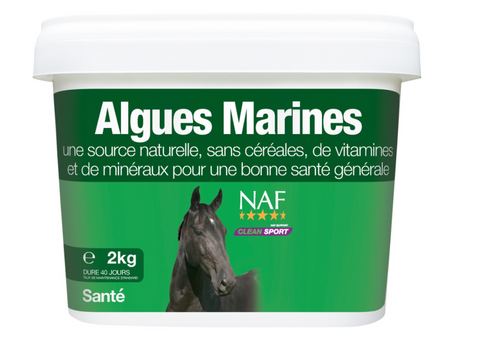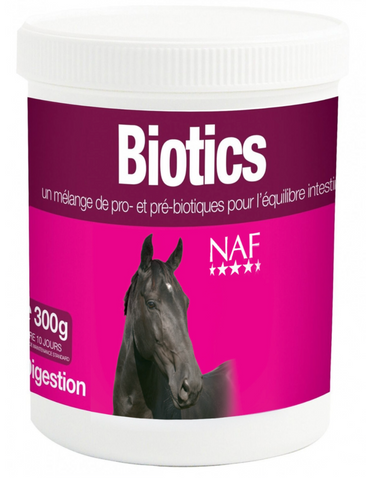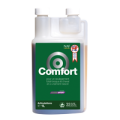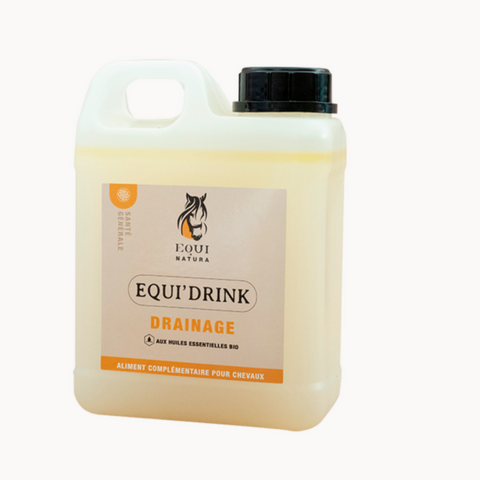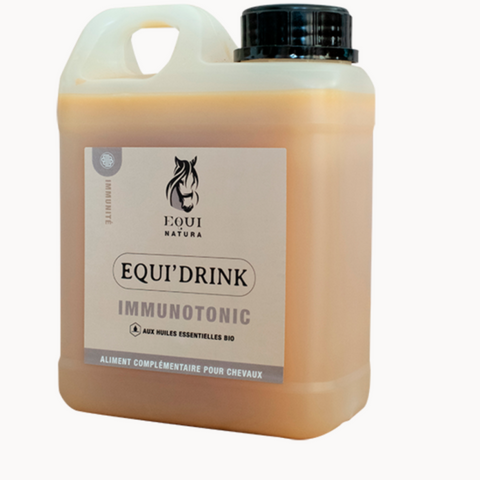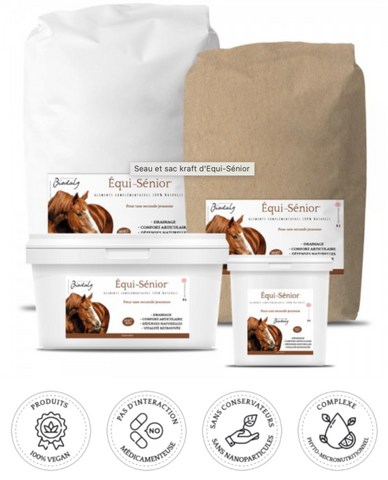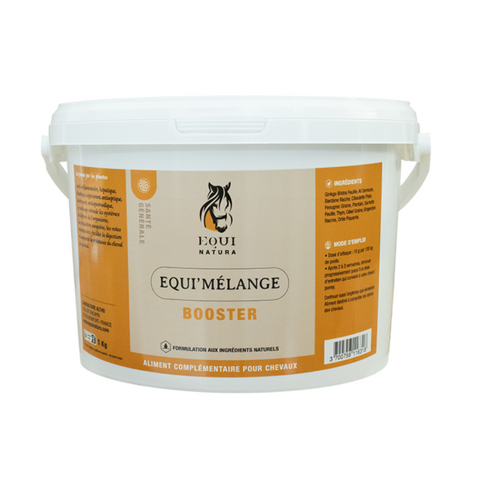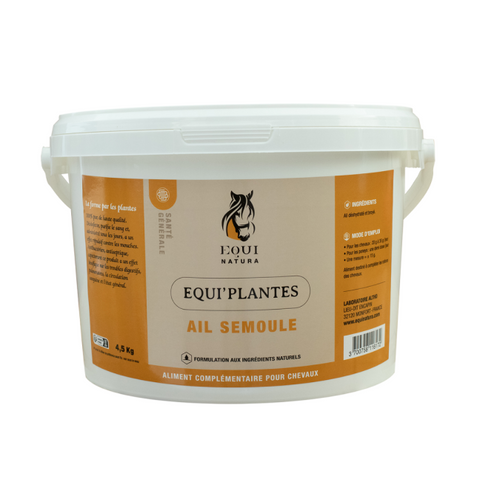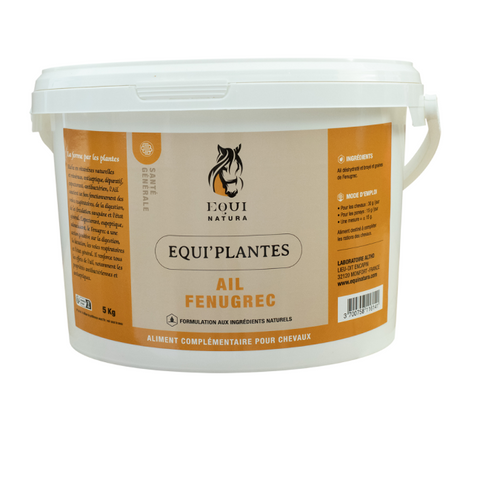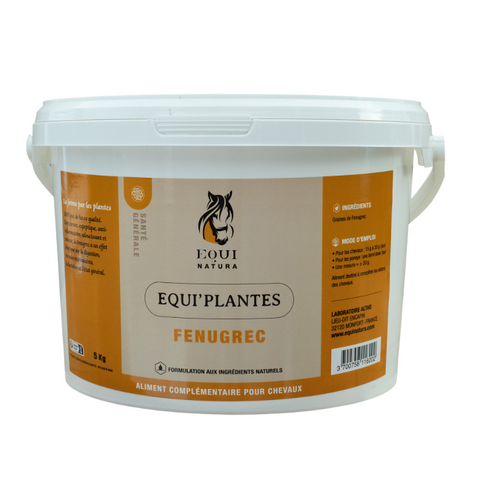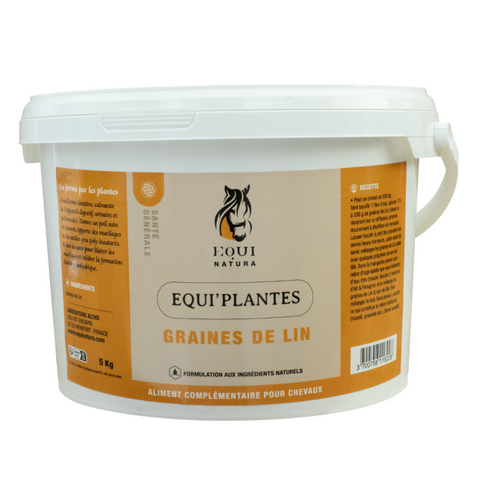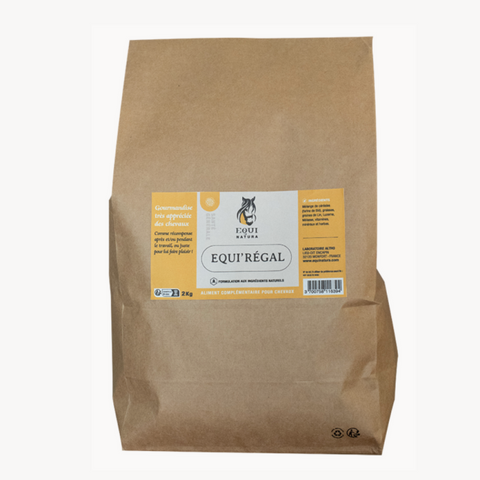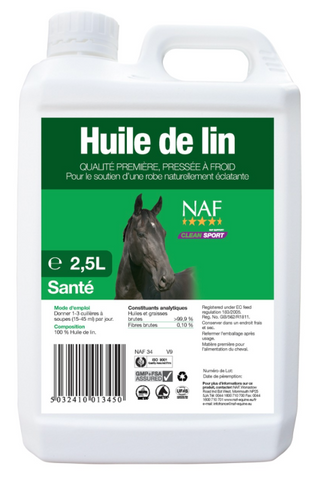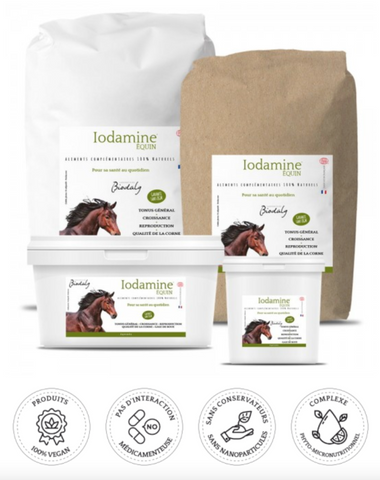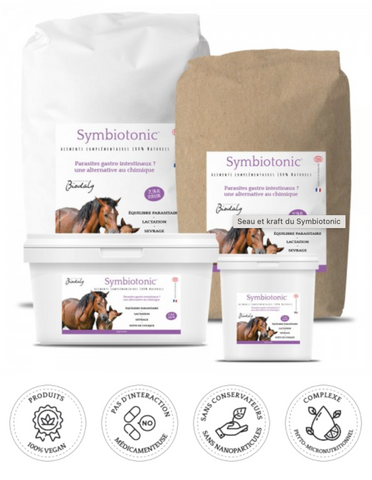Additional information: amino acids
Amino acids are the building blocks of proteins, which in turn are very important as the basic material of all body tissues: muscles, connective tissue, blood, organs, hair, hooves and legs. nerves.
Proteins have various functions: they play a role in growth, in recovery processes, in energy production phenomena, in fertility, in heredity, in the functioning of the immune system, in the production of hemoglobin, hormones and enzymes.
There are 22 amino acids, 9 of which are not produced by the horse itself.
These nine are called: essential amino acids, they are proline, isoleucine, lysine, methionine, phenylalanine, threonine, tryptophan, arginine and valine. They will be provided by the proteins in forages, concentrated feeds and cereals. However, in this form, the horse does not absorb them directly. During digestion, proteins are split into elementary amino acids which will then be used to synthesize the body's own proteins.
The order, length, and bonds of amino acid chains determine the properties of proteins. If you compare amino acids to letters of the alphabet, proteins (= chains of amino acids) will be words and protein associations will be sentences; It remains to imagine how many “sentences” are possible from 22 letters!
If one amino acid is missing, there is an immediate influence on the functioning of the others, which can have considerable consequences. But excess protein can also negatively influence your horse's health.
Most proteins are "worked" in the stomach and small intestine, broken down into amino acids which are then used by the liver to build new proteins.
Amino acids that are not absorbed by the liver are transformed into urea and eliminated by the kidneys. This phenomenon requires a lot of energy. Too much protein-rich forage can therefore have a detrimental effect on the horse's physical condition and health.
Proteins are raw materials and not energy suppliers; dose them correctly. By supplementing the forage with amino acids, you give your horse sufficient basic materials, which will avoid the risks of excessive protein absorption, which results in diarrhea, colic, liver problems, laminitis.
Protein deficiency manifests itself as loss of appetite, dull coat, lack of energy, weight loss and poor growth in foals.
Tryptophan
It is an anti-stress, which stimulates the formation of vitamin B3 necessary for the production of serotonin.
Methionine
It is an antioxidant that stimulates fat metabolism and detoxifies the liver. It contains sulfur and is essential, combined with selenium, for the health of the skin, coat and hooves. Necessary for vitamin B12 to function.
Lysine
This acid is important for growth, development and the immune system. Present in muscle tissue and collagen. Increased need in foals and breeders.
Wisteria
This acid stimulates liver detoxification, wound healing and is part of the composition of collagen.
Arginine
This acid stimulates the immune system and wound healing, stimulates fat metabolism and improves insulin production.
Asparagine
This acid participates in the elimination of ammonia, has a positive influence on energy metabolism and on the transport of magnesium and potassium to the cells and stimulates the absorption of trace elements in the intestines.
Carnitine
This acid has a positive influence on energy metabolism; it is found in particular in the cardiac and skeletal muscles and in the adrenal glands. It is important for the transport of fatty acids into the cell.
(Iso)leucine
This acid stimulates the growth and recovery of muscle tissue.
Proline
This acid is the main constituent of collagen and muscles, it is important for healthy skin.
Proteins have various functions: they play a role in growth, in recovery processes, in energy production phenomena, in fertility, in heredity, in the functioning of the immune system, in the production of hemoglobin, hormones and enzymes.
There are 22 amino acids, 9 of which are not produced by the horse itself.
These nine are called: essential amino acids, they are proline, isoleucine, lysine, methionine, phenylalanine, threonine, tryptophan, arginine and valine. They will be provided by the proteins in forages, concentrated feeds and cereals. However, in this form, the horse does not absorb them directly. During digestion, proteins are split into elementary amino acids which will then be used to synthesize the body's own proteins.
The order, length, and bonds of amino acid chains determine the properties of proteins. If you compare amino acids to letters of the alphabet, proteins (= chains of amino acids) will be words and protein associations will be sentences; It remains to imagine how many “sentences” are possible from 22 letters!
If one amino acid is missing, there is an immediate influence on the functioning of the others, which can have considerable consequences. But excess protein can also negatively influence your horse's health.
Most proteins are "worked" in the stomach and small intestine, broken down into amino acids which are then used by the liver to build new proteins.
Amino acids that are not absorbed by the liver are transformed into urea and eliminated by the kidneys. This phenomenon requires a lot of energy. Too much protein-rich forage can therefore have a detrimental effect on the horse's physical condition and health.
Proteins are raw materials and not energy suppliers; dose them correctly. By supplementing the forage with amino acids, you give your horse sufficient basic materials, which will avoid the risks of excessive protein absorption, which results in diarrhea, colic, liver problems, laminitis.
Protein deficiency manifests itself as loss of appetite, dull coat, lack of energy, weight loss and poor growth in foals.
Tryptophan
It is an anti-stress, which stimulates the formation of vitamin B3 necessary for the production of serotonin.
Methionine
It is an antioxidant that stimulates fat metabolism and detoxifies the liver. It contains sulfur and is essential, combined with selenium, for the health of the skin, coat and hooves. Necessary for vitamin B12 to function.
Lysine
This acid is important for growth, development and the immune system. Present in muscle tissue and collagen. Increased need in foals and breeders.
Wisteria
This acid stimulates liver detoxification, wound healing and is part of the composition of collagen.
Arginine
This acid stimulates the immune system and wound healing, stimulates fat metabolism and improves insulin production.
Asparagine
This acid participates in the elimination of ammonia, has a positive influence on energy metabolism and on the transport of magnesium and potassium to the cells and stimulates the absorption of trace elements in the intestines.
Carnitine
This acid has a positive influence on energy metabolism; it is found in particular in the cardiac and skeletal muscles and in the adrenal glands. It is important for the transport of fatty acids into the cell.
(Iso)leucine
This acid stimulates the growth and recovery of muscle tissue.
Proline
This acid is the main constituent of collagen and muscles, it is important for healthy skin.

